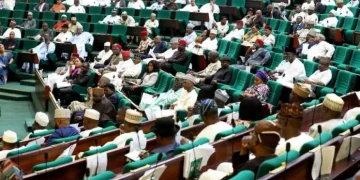The United Nations Children s Fund (UNICEF) has said that only 36 percent of children in Nigeria attend Early Childhood Education (ECE).
UNICEF Education Specialist, Yetunde Oluwatosin stated this in Sokoto on Wednesday, at a two day Media Dialogue on Early Child Education ECE in Nigeria.
The workshop was organised by UNICEF in collaboration with the Child Rights Information Bureau CRIB of the Federal Ministry of Education.
Speaking, Oluwatosin said that early childhood remains a critical for the transformation of children but a large inequalities persist between the poorest children.
She said, “Globally fewer than one in three children ages three to four attend ECE In West and Central Africa only one in four 24 per cent attend ECE In Nigeria only one in three children 36 per cent attend but at least 10 million children are not enrolled Research has shown that children who attend ECE perform better in academy and have greater earning potential as they grow over the years.”
She further stressed that adequate data to drive early learning is critical to achieve progress in early child education, while stressing the need for a child centred method for learners to thrive.
She said lack of trained teachers, distance to school and inappropriate curriculum among others are the main barriers facing the growth of ECE in Nigeria.
“We also need to strengthen the roles of parents as the first educator of the child provide adequate funding for pre primary education build the capacity of teachers and provide adequate curriculum for ECE.
“If you look at it from the 2018 National Personnel Audit NPA of the Universal Basic Education Commission UBEC we have over 7 million learners but 154 000 teachers.
“This ratio is low and we must do something to improve this This disparity is there and we are still far behind in achieving the SDG goals she said.
On his part, the UNICEF Communication Specialist Dr Geoffrey Njoku said ECE is the foundation of a child’s development hence the need to be given attention in ensuring that thrive in the country.
He said, “The future we want is to ensure that Nigerian child have quality education ECE is the stimulation for later development We need to continue to advocate for stakeholders attention on ECE because science has shown that if we start with ECE a lot of development will happen in the country.”
He called for an increase space for children issues in the country while stressing that if resources were judiciously used there would be educational transformation.
Also speaking, the Country Coordinator Early Childhood Development Initiative (ECDI) Nigeria, Dr Amy Panyi said there was need to promote the early childhood education to have robust sector Panyi also called for the engagement of stakeholders through curriculum and capacity development of teachers as well as special education support for the children.
Amily said that children allowed to play in class through the ECE have the ability to create innovatively and relate socially with positive impacts on the latter part of the child s life.
Furthermore, the UNICEF Sokoto Chief of Field Office, Mrs Maryam Darwesh said the development of the brain in the early years is a pathway that affects physical and mental health learning and behavior throughout the life cycle.
She said children who participate in well conceived ECE programmes tend to be more successful in later schools.











